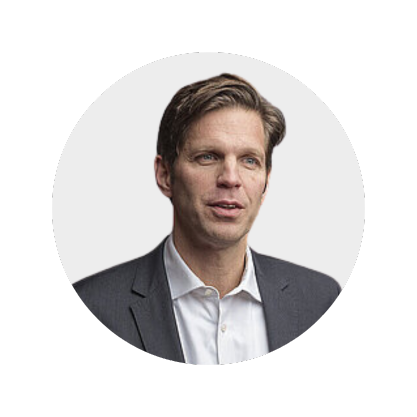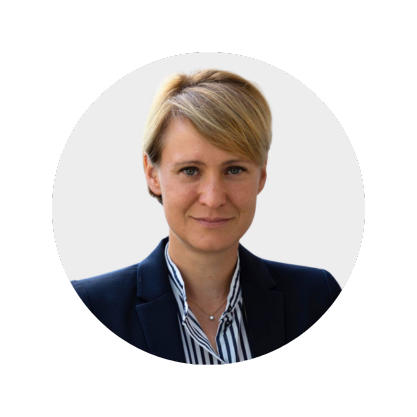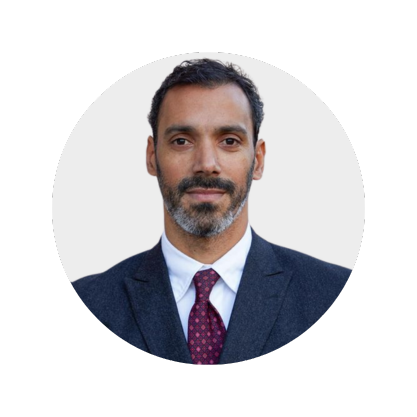If you go to places with a clear starry sky, you can see them. Lined up like a string of pearls, they ascend into orbit: the Starlink satellites. American tech companies have long since begun to extend their digital supremacy on Earth to low Earth orbits (LEO). This has become painfully clear since Russia’s invasion of Ukraine at the latest.
As a result, the European Commission has pushed ahead with a mega-project at high speed that had previously received little attention: Iris2, another major space project after Galileo (navigation) and Copernicus (earth observation). The acronym Iris2 stands for Infrastructure for Resilience, Interconnectivity and Security through Satellites and is intended to enable secure communication in Europe – independent of other companies or states.
Commissioner Thierry Breton brought the legislative process to a conclusion surprisingly quickly – and put a French stamp on the European megaproject. Germany had insisted in the Council that start-ups and SMEs should have a 30 percent share. However, the tender looked like only the big established players had a chance.
And they decided to compete with each other rather than against each other. Only one consortium led by Airbus submitted a bid. The volume: €12 billion (instead of the €6 billion estimated by the EU).
Now Germany has woken up. Not only is the project much more expensive than expected. Germany also has to bear a large part of these costs without German industry benefiting accordingly. In a belated move, Economics Minister Robert Habeck has sent a letter to Brussels saying that the project should be stopped and put out to a new tender. Too late, according to Breton: such an advanced tendering process cannot be stopped now, he wrote back.
Breton will meet Habeck in Berlin on Thursday. “We think it is very positive that Commissioner Breton is coming to Berlin in person to talk to Minister Habeck about the German criticism of Iris2,” says Matthias Wachter, BDI Department Head and Managing Director of the BDI New Space Initiative. The BDI would like to see German industry more involved in the project. This is not only important for acceptance in this country. “The German New Space ecosystem is leading in Europe,” says Wachter. “It should therefore be given appropriate consideration.” It could make an important contribution to strengthening this European megaproject with its innovative strength and expertise. It will be interesting to see whether Breton’s arguments are convincing.
Have a successful day,

Parliament President Roberta Metsola’s guest appearance at the European Council is usually just a kind of warm-up for the actual meeting of the heads of state and government. At the most recent Council in mid-April, however, Mark Rutte got straight to the point: the outgoing Dutch Prime Minister warned that the Parliament should not take too long to elect a new leader after the European elections. After all, the EU could not afford to be without leadership for an extended period in such unstable times.
This is how the British historian Peter Ludlow describes it in his briefing on the recent summit. Metsola replied to Rutte that the European Parliament must first sort itself out before it can elect a new President of the EU Commission. In the first week of the session in Strasbourg in mid-July, MEPs would first have to elect the new President of the Parliament.
In fact, it is by no means certain that the new Commission President will be elected before the summer break. Not even if the EPP with incumbent Ursula von der Leyen emerges as the clear winner of the election from June 6 to 9 and the heads of state and government propose her again after their informal summit on June 17. The power game between the parliamentary groups could stand in the way.
The Social Democrats and Liberals, the EPP’s previous partners in the Von der Leyen coalition, are urging the Christian Democrats to commit to a new alliance, possibly expanded to include the Greens. To this end, the parliamentary groups are to agree on the priorities for the election period, while the Socialists are even calling for a formal coalition agreement.
“The reins of action lie with Manfred Weber and Ursula von der Leyen,” says René Repasi, head of the German SPD parliamentary group. “If they clearly distance themselves from the right, we can find a quick solution after the European elections.”
Von der Leyen and EPP leader Manfred Weber, however, want to keep the option of cooperation with parts of the national-conservative ECR group, at least selectively. This would give the Christian Democrats more options in the new parliament to form majorities on individual legislative proposals.
The EPP points out that without the votes of constructive MEPs from the ECR in recent weeks, there would have been no majorities for the agricultural package, stability pact and asylum package. The new mandate will also rely on these forces, for example, when it comes to new trade agreements, third-country agreements on asylum and agricultural policy.
In addition, those close to von der Leyen are very aware that the hurdle for her election is high with an absolute majority of the 720 MEPs in the new European Parliament. Even if the large pro-European political groups EPP, S&D and Renew defend their clear majority in the EU-wide vote. In 2019, von der Leyen’s cushion was only nine votes because a number of EPP MEPs also refused to vote for the CDU politician.
This is why von der Leyen and Weber are also seeking votes from the ECR camp, which they see as pro-European and on the side of Ukraine. These include Giorgia Meloni’s Fratelli d’Italia and the ODS party of Czech Prime Minister Petr Fiala. Other ECR parties such as the Polish PiS, on the other hand, are not considered capable of satisfying them.
However, the other pro-European parties are mobilizing against this. A few days ago, the leaders of the S&D, Renew, Green and Left groups called on the EPP to renounce any cooperation with the ECR: “We will not cooperate or enter into a coalition with far-right parties at any level, and we call on the Commission President and all democratic parties to categorically reject any normalization, cooperation and alliances with far-right and radical parties,” reads the document, which was co-signed by Chancellor Olaf Scholz and Spain’s Prime Minister Pedro Sánchez.
The EPP was also invited to reject cooperation with radical parties. According to reports, it made it a condition that it would also reject cooperation with radical left-wing forces. However, the other parties were not prepared to do so.
It is clear that time is running out for coalition negotiations. It will likely take until June 26 before the S&D, Greens and Liberals are ready for talks. According to current plans, the newly formed groups want to appoint their leaders on this date. Manfred Weber (EPP) wants to be confirmed as EPP group leader a week earlier.
The EPP Group is also going on a retreat to Portugal on July 3 and 4. Even if the political groups only want to negotiate with the President-designate of the Commission on the most important projects in agricultural, trade and defense policy and on the internal market, at least two weeks are scheduled for this. Working groups have to be formed beforehand, and compromises have to be found and political support obtained.
On June 24, the Bureau of the current European Parliament meets once again. It sets the agenda for the first plenary week with the constituent session. It is ruled out that there will be an extraordinary second sitting week in July, specifically for the election of the Commission President.
The constituent meeting is scheduled to take place on Tuesday, July 16. The election of the new Bureau is to begin on the same day: The President of the European Parliament will be elected for two and a half years – if the EPP has its way, incumbent Roberta Metsola will continue in office. The 14 Vice-Presidents and the Quaestors will then be elected.
Depending on how long the elections take, the election of the Commission President could be scheduled for Wednesday evening. If the elections drag on into Thursday, this election could also take place on Friday. The officials in the European Parliament have already prepared for this: They have booked their hotels for an extra day until Friday as an exception.
If there is still not enough time, the election of the new Commission President will be postponed until September. Von der Leyen could be threatened by the long delay if the lack of a majority is interpreted as a weakness and alternative names are discussed. The leaders of the S&D, Renew and Greens are also aware of this – and could use the time factor as leverage to wrest concessions from her in terms of content.
At the beginning of the current legislative period, the EU Commission presented its second Circular Economy Action Plan in March 2020 – 35 measures for an economy that conserves the value of resources instead of consuming them. The Commission has now launched all of them. Whether circularity becomes a business model for companies now depends largely on the implementation and design of the details.
The transition to a circular economy is an important lever for the EU to achieve the Green Deal. The Commission estimates that corresponding measures – such as a longer lifespan for products – could contribute up to 25 percent to the EU’s climate targets. Careful use of resources should enable operating within planetary boundaries. Globally, an estimated 90 percent of the loss of biodiversity and water scarcity can be attributed to the extraction and processing of resources alone.
At the same time, the EU wants to become less dependent on imports from other countries by reducing its consumption of primary materials. But there is still a long way to go: in 2022, the EU covered 85 percent of its demand for fossil energy materials (mainly plastics) and 70 percent of its demand for metal ores through imports.
According to the European Environment Agency (EEA), however, it is unlikely that the EU will achieve the targets from the second action plan by 2030. One key goal is to double the so-called circular material use rate. This indicates the proportion of recycled raw materials in total consumption. It has been stagnating at around eleven percent for more than ten years. According to the EEA, it could be doubled by 2030 if the recycling rate of waste rises to 70 percent, the material input of the economy falls by 15 percent and the consumption of fossil fuels decreases by a third. For the transformation to actually take off, the expert panel believes that much more action is needed.
The action plan for the circular economy must be “continued with real ambition,” demands Katharina Reuter, Managing Director of the German Sustainable Economy Association. “It is [however] questionable whether the future-oriented path of the Green Deal will be continued if Parliament slips to the right,” says Rebecca Tauer, Head of the Circular Economy Program at WWF Germany. In the current legislative period, there was already strong resistance to individual projects from the Circular Economy Action Plan, such as the Packaging Ordinance – which led to a significant weakening.
The “inertial forces of the linear economy” also stand in the way of progress, says Reuter. One problem: linear business models are often more lucrative than circular ones – because the real costs of environmental damage are generally not reflected in pricing. This means, for example, that recycled PET plastic was occasionally more expensive than that from primary production. Creating functioning markets for secondary raw materials and recyclable products is therefore “a huge challenge for the new Commission,” says Claas Oehlmann, Managing Director of the BDI Circular Economy Initiative.
Stakeholders from business and civil society consider the implementation of the Ecodesign Regulation to be particularly important in the coming legislative period. The Commission still has to define the requirements for individual product groups through delegated acts, for example, for durability and reparability. Only then will it be decided “how ambitious the rules will be,” says Tauer from WWF. For BNW Managing Director Reuter, a “game changer” is the digital product passport, for which the conditions will be created over the next few years. It is to be introduced gradually from 2027. The detailed requirements will also be defined by delegated acts.
The Federal Environment Ministry believes that the revision of the Waste Framework Directive should be completed “swiftly and ambitiously.” In March, the EU Parliament defined its position for the negotiations with the Council. According to the WWF, the proposal lacks binding collection and recycling targets for textiles. In addition, the reduction targets for food are insufficient. The BNW calls for the extended producer responsibility for textiles to have a “smart” design “so that it actually results in changes to product design” – for example, so that textiles are easier to repair.
The adoption of the Green Claims Directive is on the agenda after the European elections. Companies will no longer be allowed to make advertising claims about the sustainability of products without external verification. The directive to empowering consumers for the green transition has already been adopted, which prohibits misleading environmental claims and unfair claims on carbon offsetting and specifies the liability of companies – for example, with regard to information on premature obsolescence.
In the coming legislative period, Parliament and the Council will also deal with the Commission’s proposals for improving the circularity of the automotive industry. A new regulation will replace the directives on end-of-life vehicles and on reusability, recyclability and recoverability. The focus will be on increasing the use of recycled materials and dealing with end-of-life vehicles that have not yet been collected.
May 15, 2024; Brussels (Belgium)
EBS, Conference European Digital Summit 2024
The EU Digital Summit spotlights key priorities for a thriving digital economy within the Union. INFO & REGISTRATION
May 15, 2024; Berlin (Germany)
EIT, Conference Road to net zero with Europe’s largest innovation ecosystem
The European Institute of Innovation & Technology (EIT) focuses on the EIT’s role and impact in boosting green and sustainable innovation across Europe. REGISTRATION BY TODAY
May 15, 2024; 8-9 a.m., Berlin (Germany)
Hertie School, Roundtable EU to go: No risk, no finance? A European Capital Market Union
The Hertie School explains the idea behind a capital market union. INFO & REGISTRATION
May 16-17, 2024; Trier/online
ERA, Conference Annual Conference on European Social Security Law 2024
The Academy of European Law (ERA) is aimed at practitioners of law specializing in social security to keep up-to-date with the most recent developments in legislation, jurisprudence, and practice in this field. INFO & REGISTRATION
May 16, 2024; 10 a.m – 4:30 p.m., Brussels (Belgium)
EC, Conference The Brussels Economic Forum
The European Commission (EC) discusses how democracy is linked to the economy, and how this year’s vote will help shape the economy of the years to come. INFO & REGISTRATION
May 16, 2024; 10-11:15 a.m., online
FSR, Presentation Building Resilience: Strategies for Strengthening Ukraine’s Energy Future
The Florence School of Regulation (FSR) discusses the strategies and partnerships needed to strengthen Ukraine’s energy resilience. INFO & REGISTRATION
May 16, 2024; 11 a.m., online
EBD, Seminar De-briefing ECOFIN and Euro Group
The European Movement Germany (EBD) informs about the meeting of the Economic and Financial Affairs Council and the meeting of the Euro Group. INFO & REGISTRATION
May 16, 2024; 4:30-5:30 p.m., online
HBS, Seminar Exploring the future of EU-Iran relations
The Heinrich Böll Foundation (HBS) discusses the future of the EU-Iran relations. INFO & REGISTRATION
The new regulation against third-country subsidies seems to be working. Just a few weeks after the EU Commission launched an investigation into the Chinese solar manufacturers ENEVO, LONGi Solar Technologie GmbH and Shanghai Electric, the companies concerned are withdrawing from a solar project in Romania. This was announced by the EU Commission yesterday, Monday.
The companies had applied for a tender to build a 450 MW photovoltaic park in Romania. The Commission launched its investigation in April on the grounds that “there is sufficient evidence that [the companies] were granted foreign subsidies that distort the internal market.”
The regulation, which was adopted in the summer of 2023, allows the EU Commission to take action if third-country subsidies distort the internal market in public tenders or company takeovers. Following an investigation, the EU Commission can put the company in question at a disadvantage in the procurement process or even exclude it altogether. The instrument is part of the EU’s efforts to guarantee European industry a level playing field in competition with Chinese industrial policy.
In this case, the companies did not wait until the end of the investigation and withdrew from the photovoltaic project before the measures were announced. This is the second time that the regulation has been applied. In February, the EU Commission initiated proceedings against a Chinese railroad manufacturer that wanted to participate in a procurement process of the Bulgarian Ministry of Transport. The company concerned, CRRC Qingdao Sifang Locomotive, also withdrew as a result. jaa
Despite the mass protests in the country, Georgia’s pro-Russian majority in parliament is likely to pass the controversial law “for transparency on foreign influence” as early as today. In view of this scenario, the foreign ministers of twelve EU states have sent a joint letter to Foreign Affairs Commissioner Josep Borrell and Enlargement Commissioner Olivér Várhelyi calling for an “unmistakable signal” to the government in Tbilisi: The “foreign agent law” based on the Russian model was not compatible with Georgia’s path to the EU.
In addition to Balts and Eastern Europeans, Foreign Minister Annalena Baerbock and her counterparts from France, the Netherlands and Sweden also signed the letter. “We address you with great concern about the rapidly deteriorating situation in Georgia,” reads the letter, which is available to Table.Briefings. In December, the European Council granted the country the status of an EU accession candidate on the condition that further reforms take place. With this legislation, the government is now jeopardizing the opportunity to advance the country’s European and Euro-Atlantic integration.
For the EU, the credibility of the enlargement strategy is at stake: diplomats in Brussels are shocked by the anti-Western rhetoric recently used by oligarch Bidzina Ivanishvili. The billionaire is the honorary chairman and strongman of the ruling Georgian Dream party. The government’s rejection of the democratic West and its standards has been reinforced by Ivanishvili’s speech, according to the foreign ministers’ letter. It is “of great importance to send a direct and clear signal now in order to secure Georgia’s European future.”
Borrell and Várhelyi are asked in the letter to report orally on the effects of the “Russian law,” which is directed against NGOs and civil society in the country, before the summer and before the written progress report in the fall. A statement by the 27 member states condemning the anti-democratic law is also in preparation for today. According to diplomats, however, it is unclear whether Hungary will agree to a joint reaction. In this case, Borrell will issue a statement in his own name. Within the Commission, however, Enlargement Commissioner Várhelyi is also against a tough stance towards Georgia.
However, the EU does not have many instruments to exert pressure on the government in Tbilisi. In Brussels, it is expected that President Salome Zurabishvili will at least delay the entry into force of the law with a veto after it is passed in plenary today. There would then be a ten-day window to persuade the government to withdraw the law, diplomats say. Green MEP Viola von Cramon, together with three other MEPs, calls on Josep Borrell to prepare sanctions against Georgia’s strongman Ivanishvili and the members of the ruling party before the next meeting of EU foreign ministers in a separate letter.
Georgia will certainly be on the foreign ministers’ agenda at the meeting on May 27, diplomats say. Targeted sanctions are difficult in the case of Georgia, as Ivanishvili controls practically the entire state. No special decision is needed to freeze accession negotiations, as the example of Turkey demonstrates. Discussing the suspension of visa exemptions would also not make sense, as such a step would primarily affect Georgia’s pro-European population. sti
Last week, the European Union and the USA reached an agreement with the DR Congo on mining in the country. According to the agreement, the Belgian company Umicore will enter into a partnership with a subsidiary of the state-owned mining company Gécamines in order to extract germanium from mining by-products, so-called slag. This is according to a press release from Umicore. Germanium is a rare metal used in the manufacture of semiconductors, optical cables and solar cells.
The deal is part of the Minerals Security Partnership (MSP), an alliance of 14 countries and the EU under the chairmanship of the USA. The MSP aims to stimulate public and private investment in sustainable supply chains for critical minerals worldwide. It focuses on the supply chains that are most important for clean energy technologies, such as those for lithium, cobalt, nickel, manganese, graphite, rare earths and copper. The DR Congo, which has large deposits of cobalt, coltan and lithium, plays a key role here.
Umicore will support its Congolese partner in the recycling of germanium from its tailings pile in Lubumbashi. Using Belgian expertise in the areas of refining and recycling, a new processing plant will be optimized there. In return, Umicore will have exclusive access to the refined germanium. The process is scheduled to start in the last quarter of 2024.
The new agreement also comes in the wake of Congolese complaints about a memorandum of understanding between the EU and Congo’s neighbor Rwanda. In February, the EU Commission and the Rwandan government reached an agreement on sustainable supply chains for critical minerals. Congolese President Félix Tshisekedi described the agreement as a “provocation.” The Congolese government accuses Rwanda of supporting the M23 militia in eastern Congo and thus plundering mineral resources, smuggling them abroad and illegally placing them on the world market. Kinshasa is currently involved in a legal dispute with the technology company Apple, which the country’s lawyers accuse of using illegally obtained minerals in its devices.
Last Thursday, the EU envoy in Kinshasa, Nicolás Berlanga Martinez, said that the EU should have shown “more sensitivity” to Congolese concerns about the pact with Rwanda. “We are working with the Congolese government to ensure that the protocol with Rwanda, which deals with transparency and traceability of minerals, is in Congo’s favor,” he said. The DR Congo should be the first country to benefit from greater transparency in mining, as a large proportion of minerals come from the country, he added. ajs
Booking.com now also falls under the DMA: The European Commission has classified the booking platform as a gatekeeper under the Digital Markets Act (DMA). The platforms X Ads and TikTok Ads, however, are not. “Holidaymakers will benefit from more choice and hotels from more business opportunities,” said Executive Vice-President Margrethe Vestager, who is responsible for competition policy. The Commission has launched a parallel market investigation to further examine X’s objections to the classification of its online network service.
The DMA aims to ensure fair and competitive markets in the digital sector. It regulates gatekeepers, large digital platforms that provide an important interface between business users and consumers. This follows a review process undertaken by the Commission after the three companies notified their potential status as gatekeepers on March 1, 2024.
Based on Booking.com’s self-assessment, the Commission has found that this core platform service (CPS) is an important intermediary between businesses and consumers. Internal Market Commissioner Thierry Breton announced that the Commission will ensure that the company fully complies with the DMA obligations within six months.
In contrast, despite meeting the quantitative thresholds of the DMA, the Commission has decided that X Ads and TikTok Ads do not qualify as important intermediaries. A further market investigation will assess X’s objections to the classification of its online network service and is expected to be completed within five months. vis
The Commission services responsible for the Digital Services Act (DSA) have signed an administrative agreement with the UK media regulator Ofcom to support each other in the enforcement of social media regulations. This agreement aims to facilitate the work of the Commission and the Office of Communication in the supervision of online platforms under the DSA and the UK Online Safety Act.
The agreement covers areas of common interest such as the online protection of minors, age-appropriate design technologies, the transparency of online platforms, risk assessments and the impact of algorithms on systemic risks to society. The cooperation includes technical expert dialogues, joint training of technical staff, exchange of best practices, joint studies and coordinated research projects. vis
In a recent position paper, the Fraunhofer-Gesellschaft calls for greater implementation and promotion of generative AI technologies in Germany and Europe. The recommendations are aimed at strengthening technological sovereignty and competitiveness in the international setting while at the same time promoting the application of generative AI.
The urgency of these measures arises from the increasing dominance of US AI platforms and the resulting dependence of European players. Fraunhofer argues that rapid and effective implementation of European AI regulation (AI Act) and the promotion of in-house developments are essential to reduce dependence on non-European technologies and at the same time increase economic value creation.
The position paper outlines three central pillars for strengthening generative AI:
These strategic approaches should not only enable Germany and Europe to act independently but also to take a leading role in the ethical and sustainable development of AI technologies. Fraunhofer sees this as an opportunity to promote international competitiveness sustainably and at the same time strengthen data protection and trustworthiness in AI systems. vis
In the early parliamentary elections in Catalonia, voters punished the separatist forces and rewarded the socialists. For the first time since 1980, the various pro-independence parties lost the absolute majority of seats in the regional parliament. The Socialists led by top candidate Salvador Illa, on the other hand, received the most votes and the most seats for the first time, but fell short of an absolute majority of 68 seats. “I am taking on the responsibility of leading this new stage,” said Illa on election night. This means turning away from separatism.
Spain’s head of government Pedro Sánchez was also credited with the Socialists’ success. He had campaigned for the pardoning of convicted separatists and for an amnesty for supporters of independence in the region in north-eastern Spain who had fled abroad. In this way, he wanted to ease the conflict and take the wind out of the separatists’ sails. In return, he secured their votes for his re-election in the parliament in Madrid last fall.
Illa could now be elected head of government with the support of other left-wing parties. A minor flaw: this includes the biggest loser of the election, the separatist ERC. The party of Pere Aragonès, who is now only the caretaker head of the regional government, plummeted to third place, far behind Junts, the separatist leader Carles Puigdemont, who is still living in exile. Visibly disappointed, Aragonès announced on the evening of the election that he would go into opposition. It was unclear whether his party would follow him there. The Socialists called on the ERC not to block Illa’s election as head of government.
On Monday, Aragonès also drew personal conclusions and resigned from his parliamentary seat. He is leaving the “front line” of politics, he said. The negotiations to form a government are likely to be lengthy and if they fail, there could be another new election.
Puigdemont, who faces arrest in Spain until the amnesty comes into force, therefore had to conduct the election campaign from abroad. In the southern French town of Argelès-sur-Mer, just ten kilometers north of the border with Spain, he claimed the office of head of government in Barcelona on Monday: “We can bring together a coherent majority.” He meant a government that would only include separatist parties. Such a minority government by Puigdemont would have to be tolerated by the victorious Socialists. However, they have already ruled this out.
Following an illegal independence referendum and a decision to secede from Spain, Catalonia was plunged into chaos under the aegis of Puigdemont in the fall of 2017. Puigdemont was able to flee abroad with other members of the government at the time. Several of those who remained in the country were sentenced to prison terms of up to 13 years but were later pardoned. Catalonia is still suffering from the consequences of the chaotic attempt at separation – political instability and a flight of companies and capital. dpa

Nicolai von Ondarza – Head of Research Division EU/Europe German Institute for International and Security Affairs
The head of the EU/Europe research group at the German Institute for International and Security Affairs is perhaps the best expert on German European policy and one of the leading voices in the debate on the further development of the European Union. He analyzes with astuteness and political intuition.

Johannes Lindner – Co-Director Jacques Delors Center
The head of the Jacques Delors Centre at the Berlin Hertie School runs a very agile think tank. He conducts research into economic and financial policy issues. From his time at the European Central Bank, he provides expertise and good contacts in the EU institutions and the German government.

Thu Nguyen – Vice-Director Jacques Delors Centre
The Deputy Director of the Jacques Delors Centre is a proven expert on institutional issues and the rule of law. The German government therefore appointed the European lawyer to the Franco-German expert group that presented reform proposals for the EU in the fall of 2023. She also addresses a wider audience as host of the “EU to go” podcast.

Jana Puglierin – Senior Policy Fellow ECFR
The head of the Berlin office of the European Council on Foreign Relations is one of the leading experts on foreign and security policy. In the wake of the attack on Ukraine, she is much in demand as a mediator: abroad, she explains the German turnaround, and in Germany how important Berlin’s actions are.

Janis A. Emmanouilidis – Research Director EPC
He has been Research Director of the European Policy Centre for more than ten years and is one of the most influential experts in Brussels. With a degree in business administration, he covers a wide range of topics from economic policy to the democratization of the EU.

Guntram Wolff – Senior Fellow Bruegel
Guntram Wolff has been shaping economic policy debates in the EU for more than ten years. Between 2013 and 2022, he headed the influential Brussels think tank Bruegel, to which he returned in 2024 as a Senior Fellow after one and a half years as CEO of the German Council on Foreign Relations. The honorary professor at the University of Erfurt is currently focusing on geo-economic issues in connection with the European response to the Russian invasion of Ukraine.

Jeromin Zettelmeyer – Director Bruegel
Jeromin Zettelmeyer came to Brussels in 2022 from the Strategy Department of the International Monetary Fund (IMF) in Washington DC to take over the management of Bruegel. In addition to leading the think tank, he is currently working on issues relating to economic security and European competitiveness.

Shahin Vallée – Head of Geoeconomics DGAP
Shahin Vallée has been following European economic policy up close for more than a decade. The current Director of the Geo-Economics Program of the German Council on Foreign Relations was economic advisor to the then President of the European Council, Herman Van Rompuy, from 2012 to 2014. He then became economic advisor to Emmanuel Macron when he headed the French Ministry of the Economy. He is currently working intensively on French and European budget policy.

Stormy-Annika Mildner – Director Aspen Institute Germany
The internationally recognized expert on transatlantic relations and trade issues has been Director of the Aspen Institute Germany since January 2021. With her scientific and economic expertise, she is actively involved in the discussion of major political issues of the future. Her core topics are digital transformation, the future role of Germany and Europe and relations with China.

Georg Zachmann – Energy expert Bruegel
With his team of experts at Bruegel, he repeatedly manages to provide impetus for the Commission’s energy policy. His team’s data collections are very popular with other experts and journalists alike – especially since the energy crisis.
If you go to places with a clear starry sky, you can see them. Lined up like a string of pearls, they ascend into orbit: the Starlink satellites. American tech companies have long since begun to extend their digital supremacy on Earth to low Earth orbits (LEO). This has become painfully clear since Russia’s invasion of Ukraine at the latest.
As a result, the European Commission has pushed ahead with a mega-project at high speed that had previously received little attention: Iris2, another major space project after Galileo (navigation) and Copernicus (earth observation). The acronym Iris2 stands for Infrastructure for Resilience, Interconnectivity and Security through Satellites and is intended to enable secure communication in Europe – independent of other companies or states.
Commissioner Thierry Breton brought the legislative process to a conclusion surprisingly quickly – and put a French stamp on the European megaproject. Germany had insisted in the Council that start-ups and SMEs should have a 30 percent share. However, the tender looked like only the big established players had a chance.
And they decided to compete with each other rather than against each other. Only one consortium led by Airbus submitted a bid. The volume: €12 billion (instead of the €6 billion estimated by the EU).
Now Germany has woken up. Not only is the project much more expensive than expected. Germany also has to bear a large part of these costs without German industry benefiting accordingly. In a belated move, Economics Minister Robert Habeck has sent a letter to Brussels saying that the project should be stopped and put out to a new tender. Too late, according to Breton: such an advanced tendering process cannot be stopped now, he wrote back.
Breton will meet Habeck in Berlin on Thursday. “We think it is very positive that Commissioner Breton is coming to Berlin in person to talk to Minister Habeck about the German criticism of Iris2,” says Matthias Wachter, BDI Department Head and Managing Director of the BDI New Space Initiative. The BDI would like to see German industry more involved in the project. This is not only important for acceptance in this country. “The German New Space ecosystem is leading in Europe,” says Wachter. “It should therefore be given appropriate consideration.” It could make an important contribution to strengthening this European megaproject with its innovative strength and expertise. It will be interesting to see whether Breton’s arguments are convincing.
Have a successful day,

Parliament President Roberta Metsola’s guest appearance at the European Council is usually just a kind of warm-up for the actual meeting of the heads of state and government. At the most recent Council in mid-April, however, Mark Rutte got straight to the point: the outgoing Dutch Prime Minister warned that the Parliament should not take too long to elect a new leader after the European elections. After all, the EU could not afford to be without leadership for an extended period in such unstable times.
This is how the British historian Peter Ludlow describes it in his briefing on the recent summit. Metsola replied to Rutte that the European Parliament must first sort itself out before it can elect a new President of the EU Commission. In the first week of the session in Strasbourg in mid-July, MEPs would first have to elect the new President of the Parliament.
In fact, it is by no means certain that the new Commission President will be elected before the summer break. Not even if the EPP with incumbent Ursula von der Leyen emerges as the clear winner of the election from June 6 to 9 and the heads of state and government propose her again after their informal summit on June 17. The power game between the parliamentary groups could stand in the way.
The Social Democrats and Liberals, the EPP’s previous partners in the Von der Leyen coalition, are urging the Christian Democrats to commit to a new alliance, possibly expanded to include the Greens. To this end, the parliamentary groups are to agree on the priorities for the election period, while the Socialists are even calling for a formal coalition agreement.
“The reins of action lie with Manfred Weber and Ursula von der Leyen,” says René Repasi, head of the German SPD parliamentary group. “If they clearly distance themselves from the right, we can find a quick solution after the European elections.”
Von der Leyen and EPP leader Manfred Weber, however, want to keep the option of cooperation with parts of the national-conservative ECR group, at least selectively. This would give the Christian Democrats more options in the new parliament to form majorities on individual legislative proposals.
The EPP points out that without the votes of constructive MEPs from the ECR in recent weeks, there would have been no majorities for the agricultural package, stability pact and asylum package. The new mandate will also rely on these forces, for example, when it comes to new trade agreements, third-country agreements on asylum and agricultural policy.
In addition, those close to von der Leyen are very aware that the hurdle for her election is high with an absolute majority of the 720 MEPs in the new European Parliament. Even if the large pro-European political groups EPP, S&D and Renew defend their clear majority in the EU-wide vote. In 2019, von der Leyen’s cushion was only nine votes because a number of EPP MEPs also refused to vote for the CDU politician.
This is why von der Leyen and Weber are also seeking votes from the ECR camp, which they see as pro-European and on the side of Ukraine. These include Giorgia Meloni’s Fratelli d’Italia and the ODS party of Czech Prime Minister Petr Fiala. Other ECR parties such as the Polish PiS, on the other hand, are not considered capable of satisfying them.
However, the other pro-European parties are mobilizing against this. A few days ago, the leaders of the S&D, Renew, Green and Left groups called on the EPP to renounce any cooperation with the ECR: “We will not cooperate or enter into a coalition with far-right parties at any level, and we call on the Commission President and all democratic parties to categorically reject any normalization, cooperation and alliances with far-right and radical parties,” reads the document, which was co-signed by Chancellor Olaf Scholz and Spain’s Prime Minister Pedro Sánchez.
The EPP was also invited to reject cooperation with radical parties. According to reports, it made it a condition that it would also reject cooperation with radical left-wing forces. However, the other parties were not prepared to do so.
It is clear that time is running out for coalition negotiations. It will likely take until June 26 before the S&D, Greens and Liberals are ready for talks. According to current plans, the newly formed groups want to appoint their leaders on this date. Manfred Weber (EPP) wants to be confirmed as EPP group leader a week earlier.
The EPP Group is also going on a retreat to Portugal on July 3 and 4. Even if the political groups only want to negotiate with the President-designate of the Commission on the most important projects in agricultural, trade and defense policy and on the internal market, at least two weeks are scheduled for this. Working groups have to be formed beforehand, and compromises have to be found and political support obtained.
On June 24, the Bureau of the current European Parliament meets once again. It sets the agenda for the first plenary week with the constituent session. It is ruled out that there will be an extraordinary second sitting week in July, specifically for the election of the Commission President.
The constituent meeting is scheduled to take place on Tuesday, July 16. The election of the new Bureau is to begin on the same day: The President of the European Parliament will be elected for two and a half years – if the EPP has its way, incumbent Roberta Metsola will continue in office. The 14 Vice-Presidents and the Quaestors will then be elected.
Depending on how long the elections take, the election of the Commission President could be scheduled for Wednesday evening. If the elections drag on into Thursday, this election could also take place on Friday. The officials in the European Parliament have already prepared for this: They have booked their hotels for an extra day until Friday as an exception.
If there is still not enough time, the election of the new Commission President will be postponed until September. Von der Leyen could be threatened by the long delay if the lack of a majority is interpreted as a weakness and alternative names are discussed. The leaders of the S&D, Renew and Greens are also aware of this – and could use the time factor as leverage to wrest concessions from her in terms of content.
At the beginning of the current legislative period, the EU Commission presented its second Circular Economy Action Plan in March 2020 – 35 measures for an economy that conserves the value of resources instead of consuming them. The Commission has now launched all of them. Whether circularity becomes a business model for companies now depends largely on the implementation and design of the details.
The transition to a circular economy is an important lever for the EU to achieve the Green Deal. The Commission estimates that corresponding measures – such as a longer lifespan for products – could contribute up to 25 percent to the EU’s climate targets. Careful use of resources should enable operating within planetary boundaries. Globally, an estimated 90 percent of the loss of biodiversity and water scarcity can be attributed to the extraction and processing of resources alone.
At the same time, the EU wants to become less dependent on imports from other countries by reducing its consumption of primary materials. But there is still a long way to go: in 2022, the EU covered 85 percent of its demand for fossil energy materials (mainly plastics) and 70 percent of its demand for metal ores through imports.
According to the European Environment Agency (EEA), however, it is unlikely that the EU will achieve the targets from the second action plan by 2030. One key goal is to double the so-called circular material use rate. This indicates the proportion of recycled raw materials in total consumption. It has been stagnating at around eleven percent for more than ten years. According to the EEA, it could be doubled by 2030 if the recycling rate of waste rises to 70 percent, the material input of the economy falls by 15 percent and the consumption of fossil fuels decreases by a third. For the transformation to actually take off, the expert panel believes that much more action is needed.
The action plan for the circular economy must be “continued with real ambition,” demands Katharina Reuter, Managing Director of the German Sustainable Economy Association. “It is [however] questionable whether the future-oriented path of the Green Deal will be continued if Parliament slips to the right,” says Rebecca Tauer, Head of the Circular Economy Program at WWF Germany. In the current legislative period, there was already strong resistance to individual projects from the Circular Economy Action Plan, such as the Packaging Ordinance – which led to a significant weakening.
The “inertial forces of the linear economy” also stand in the way of progress, says Reuter. One problem: linear business models are often more lucrative than circular ones – because the real costs of environmental damage are generally not reflected in pricing. This means, for example, that recycled PET plastic was occasionally more expensive than that from primary production. Creating functioning markets for secondary raw materials and recyclable products is therefore “a huge challenge for the new Commission,” says Claas Oehlmann, Managing Director of the BDI Circular Economy Initiative.
Stakeholders from business and civil society consider the implementation of the Ecodesign Regulation to be particularly important in the coming legislative period. The Commission still has to define the requirements for individual product groups through delegated acts, for example, for durability and reparability. Only then will it be decided “how ambitious the rules will be,” says Tauer from WWF. For BNW Managing Director Reuter, a “game changer” is the digital product passport, for which the conditions will be created over the next few years. It is to be introduced gradually from 2027. The detailed requirements will also be defined by delegated acts.
The Federal Environment Ministry believes that the revision of the Waste Framework Directive should be completed “swiftly and ambitiously.” In March, the EU Parliament defined its position for the negotiations with the Council. According to the WWF, the proposal lacks binding collection and recycling targets for textiles. In addition, the reduction targets for food are insufficient. The BNW calls for the extended producer responsibility for textiles to have a “smart” design “so that it actually results in changes to product design” – for example, so that textiles are easier to repair.
The adoption of the Green Claims Directive is on the agenda after the European elections. Companies will no longer be allowed to make advertising claims about the sustainability of products without external verification. The directive to empowering consumers for the green transition has already been adopted, which prohibits misleading environmental claims and unfair claims on carbon offsetting and specifies the liability of companies – for example, with regard to information on premature obsolescence.
In the coming legislative period, Parliament and the Council will also deal with the Commission’s proposals for improving the circularity of the automotive industry. A new regulation will replace the directives on end-of-life vehicles and on reusability, recyclability and recoverability. The focus will be on increasing the use of recycled materials and dealing with end-of-life vehicles that have not yet been collected.
May 15, 2024; Brussels (Belgium)
EBS, Conference European Digital Summit 2024
The EU Digital Summit spotlights key priorities for a thriving digital economy within the Union. INFO & REGISTRATION
May 15, 2024; Berlin (Germany)
EIT, Conference Road to net zero with Europe’s largest innovation ecosystem
The European Institute of Innovation & Technology (EIT) focuses on the EIT’s role and impact in boosting green and sustainable innovation across Europe. REGISTRATION BY TODAY
May 15, 2024; 8-9 a.m., Berlin (Germany)
Hertie School, Roundtable EU to go: No risk, no finance? A European Capital Market Union
The Hertie School explains the idea behind a capital market union. INFO & REGISTRATION
May 16-17, 2024; Trier/online
ERA, Conference Annual Conference on European Social Security Law 2024
The Academy of European Law (ERA) is aimed at practitioners of law specializing in social security to keep up-to-date with the most recent developments in legislation, jurisprudence, and practice in this field. INFO & REGISTRATION
May 16, 2024; 10 a.m – 4:30 p.m., Brussels (Belgium)
EC, Conference The Brussels Economic Forum
The European Commission (EC) discusses how democracy is linked to the economy, and how this year’s vote will help shape the economy of the years to come. INFO & REGISTRATION
May 16, 2024; 10-11:15 a.m., online
FSR, Presentation Building Resilience: Strategies for Strengthening Ukraine’s Energy Future
The Florence School of Regulation (FSR) discusses the strategies and partnerships needed to strengthen Ukraine’s energy resilience. INFO & REGISTRATION
May 16, 2024; 11 a.m., online
EBD, Seminar De-briefing ECOFIN and Euro Group
The European Movement Germany (EBD) informs about the meeting of the Economic and Financial Affairs Council and the meeting of the Euro Group. INFO & REGISTRATION
May 16, 2024; 4:30-5:30 p.m., online
HBS, Seminar Exploring the future of EU-Iran relations
The Heinrich Böll Foundation (HBS) discusses the future of the EU-Iran relations. INFO & REGISTRATION
The new regulation against third-country subsidies seems to be working. Just a few weeks after the EU Commission launched an investigation into the Chinese solar manufacturers ENEVO, LONGi Solar Technologie GmbH and Shanghai Electric, the companies concerned are withdrawing from a solar project in Romania. This was announced by the EU Commission yesterday, Monday.
The companies had applied for a tender to build a 450 MW photovoltaic park in Romania. The Commission launched its investigation in April on the grounds that “there is sufficient evidence that [the companies] were granted foreign subsidies that distort the internal market.”
The regulation, which was adopted in the summer of 2023, allows the EU Commission to take action if third-country subsidies distort the internal market in public tenders or company takeovers. Following an investigation, the EU Commission can put the company in question at a disadvantage in the procurement process or even exclude it altogether. The instrument is part of the EU’s efforts to guarantee European industry a level playing field in competition with Chinese industrial policy.
In this case, the companies did not wait until the end of the investigation and withdrew from the photovoltaic project before the measures were announced. This is the second time that the regulation has been applied. In February, the EU Commission initiated proceedings against a Chinese railroad manufacturer that wanted to participate in a procurement process of the Bulgarian Ministry of Transport. The company concerned, CRRC Qingdao Sifang Locomotive, also withdrew as a result. jaa
Despite the mass protests in the country, Georgia’s pro-Russian majority in parliament is likely to pass the controversial law “for transparency on foreign influence” as early as today. In view of this scenario, the foreign ministers of twelve EU states have sent a joint letter to Foreign Affairs Commissioner Josep Borrell and Enlargement Commissioner Olivér Várhelyi calling for an “unmistakable signal” to the government in Tbilisi: The “foreign agent law” based on the Russian model was not compatible with Georgia’s path to the EU.
In addition to Balts and Eastern Europeans, Foreign Minister Annalena Baerbock and her counterparts from France, the Netherlands and Sweden also signed the letter. “We address you with great concern about the rapidly deteriorating situation in Georgia,” reads the letter, which is available to Table.Briefings. In December, the European Council granted the country the status of an EU accession candidate on the condition that further reforms take place. With this legislation, the government is now jeopardizing the opportunity to advance the country’s European and Euro-Atlantic integration.
For the EU, the credibility of the enlargement strategy is at stake: diplomats in Brussels are shocked by the anti-Western rhetoric recently used by oligarch Bidzina Ivanishvili. The billionaire is the honorary chairman and strongman of the ruling Georgian Dream party. The government’s rejection of the democratic West and its standards has been reinforced by Ivanishvili’s speech, according to the foreign ministers’ letter. It is “of great importance to send a direct and clear signal now in order to secure Georgia’s European future.”
Borrell and Várhelyi are asked in the letter to report orally on the effects of the “Russian law,” which is directed against NGOs and civil society in the country, before the summer and before the written progress report in the fall. A statement by the 27 member states condemning the anti-democratic law is also in preparation for today. According to diplomats, however, it is unclear whether Hungary will agree to a joint reaction. In this case, Borrell will issue a statement in his own name. Within the Commission, however, Enlargement Commissioner Várhelyi is also against a tough stance towards Georgia.
However, the EU does not have many instruments to exert pressure on the government in Tbilisi. In Brussels, it is expected that President Salome Zurabishvili will at least delay the entry into force of the law with a veto after it is passed in plenary today. There would then be a ten-day window to persuade the government to withdraw the law, diplomats say. Green MEP Viola von Cramon, together with three other MEPs, calls on Josep Borrell to prepare sanctions against Georgia’s strongman Ivanishvili and the members of the ruling party before the next meeting of EU foreign ministers in a separate letter.
Georgia will certainly be on the foreign ministers’ agenda at the meeting on May 27, diplomats say. Targeted sanctions are difficult in the case of Georgia, as Ivanishvili controls practically the entire state. No special decision is needed to freeze accession negotiations, as the example of Turkey demonstrates. Discussing the suspension of visa exemptions would also not make sense, as such a step would primarily affect Georgia’s pro-European population. sti
Last week, the European Union and the USA reached an agreement with the DR Congo on mining in the country. According to the agreement, the Belgian company Umicore will enter into a partnership with a subsidiary of the state-owned mining company Gécamines in order to extract germanium from mining by-products, so-called slag. This is according to a press release from Umicore. Germanium is a rare metal used in the manufacture of semiconductors, optical cables and solar cells.
The deal is part of the Minerals Security Partnership (MSP), an alliance of 14 countries and the EU under the chairmanship of the USA. The MSP aims to stimulate public and private investment in sustainable supply chains for critical minerals worldwide. It focuses on the supply chains that are most important for clean energy technologies, such as those for lithium, cobalt, nickel, manganese, graphite, rare earths and copper. The DR Congo, which has large deposits of cobalt, coltan and lithium, plays a key role here.
Umicore will support its Congolese partner in the recycling of germanium from its tailings pile in Lubumbashi. Using Belgian expertise in the areas of refining and recycling, a new processing plant will be optimized there. In return, Umicore will have exclusive access to the refined germanium. The process is scheduled to start in the last quarter of 2024.
The new agreement also comes in the wake of Congolese complaints about a memorandum of understanding between the EU and Congo’s neighbor Rwanda. In February, the EU Commission and the Rwandan government reached an agreement on sustainable supply chains for critical minerals. Congolese President Félix Tshisekedi described the agreement as a “provocation.” The Congolese government accuses Rwanda of supporting the M23 militia in eastern Congo and thus plundering mineral resources, smuggling them abroad and illegally placing them on the world market. Kinshasa is currently involved in a legal dispute with the technology company Apple, which the country’s lawyers accuse of using illegally obtained minerals in its devices.
Last Thursday, the EU envoy in Kinshasa, Nicolás Berlanga Martinez, said that the EU should have shown “more sensitivity” to Congolese concerns about the pact with Rwanda. “We are working with the Congolese government to ensure that the protocol with Rwanda, which deals with transparency and traceability of minerals, is in Congo’s favor,” he said. The DR Congo should be the first country to benefit from greater transparency in mining, as a large proportion of minerals come from the country, he added. ajs
Booking.com now also falls under the DMA: The European Commission has classified the booking platform as a gatekeeper under the Digital Markets Act (DMA). The platforms X Ads and TikTok Ads, however, are not. “Holidaymakers will benefit from more choice and hotels from more business opportunities,” said Executive Vice-President Margrethe Vestager, who is responsible for competition policy. The Commission has launched a parallel market investigation to further examine X’s objections to the classification of its online network service.
The DMA aims to ensure fair and competitive markets in the digital sector. It regulates gatekeepers, large digital platforms that provide an important interface between business users and consumers. This follows a review process undertaken by the Commission after the three companies notified their potential status as gatekeepers on March 1, 2024.
Based on Booking.com’s self-assessment, the Commission has found that this core platform service (CPS) is an important intermediary between businesses and consumers. Internal Market Commissioner Thierry Breton announced that the Commission will ensure that the company fully complies with the DMA obligations within six months.
In contrast, despite meeting the quantitative thresholds of the DMA, the Commission has decided that X Ads and TikTok Ads do not qualify as important intermediaries. A further market investigation will assess X’s objections to the classification of its online network service and is expected to be completed within five months. vis
The Commission services responsible for the Digital Services Act (DSA) have signed an administrative agreement with the UK media regulator Ofcom to support each other in the enforcement of social media regulations. This agreement aims to facilitate the work of the Commission and the Office of Communication in the supervision of online platforms under the DSA and the UK Online Safety Act.
The agreement covers areas of common interest such as the online protection of minors, age-appropriate design technologies, the transparency of online platforms, risk assessments and the impact of algorithms on systemic risks to society. The cooperation includes technical expert dialogues, joint training of technical staff, exchange of best practices, joint studies and coordinated research projects. vis
In a recent position paper, the Fraunhofer-Gesellschaft calls for greater implementation and promotion of generative AI technologies in Germany and Europe. The recommendations are aimed at strengthening technological sovereignty and competitiveness in the international setting while at the same time promoting the application of generative AI.
The urgency of these measures arises from the increasing dominance of US AI platforms and the resulting dependence of European players. Fraunhofer argues that rapid and effective implementation of European AI regulation (AI Act) and the promotion of in-house developments are essential to reduce dependence on non-European technologies and at the same time increase economic value creation.
The position paper outlines three central pillars for strengthening generative AI:
These strategic approaches should not only enable Germany and Europe to act independently but also to take a leading role in the ethical and sustainable development of AI technologies. Fraunhofer sees this as an opportunity to promote international competitiveness sustainably and at the same time strengthen data protection and trustworthiness in AI systems. vis
In the early parliamentary elections in Catalonia, voters punished the separatist forces and rewarded the socialists. For the first time since 1980, the various pro-independence parties lost the absolute majority of seats in the regional parliament. The Socialists led by top candidate Salvador Illa, on the other hand, received the most votes and the most seats for the first time, but fell short of an absolute majority of 68 seats. “I am taking on the responsibility of leading this new stage,” said Illa on election night. This means turning away from separatism.
Spain’s head of government Pedro Sánchez was also credited with the Socialists’ success. He had campaigned for the pardoning of convicted separatists and for an amnesty for supporters of independence in the region in north-eastern Spain who had fled abroad. In this way, he wanted to ease the conflict and take the wind out of the separatists’ sails. In return, he secured their votes for his re-election in the parliament in Madrid last fall.
Illa could now be elected head of government with the support of other left-wing parties. A minor flaw: this includes the biggest loser of the election, the separatist ERC. The party of Pere Aragonès, who is now only the caretaker head of the regional government, plummeted to third place, far behind Junts, the separatist leader Carles Puigdemont, who is still living in exile. Visibly disappointed, Aragonès announced on the evening of the election that he would go into opposition. It was unclear whether his party would follow him there. The Socialists called on the ERC not to block Illa’s election as head of government.
On Monday, Aragonès also drew personal conclusions and resigned from his parliamentary seat. He is leaving the “front line” of politics, he said. The negotiations to form a government are likely to be lengthy and if they fail, there could be another new election.
Puigdemont, who faces arrest in Spain until the amnesty comes into force, therefore had to conduct the election campaign from abroad. In the southern French town of Argelès-sur-Mer, just ten kilometers north of the border with Spain, he claimed the office of head of government in Barcelona on Monday: “We can bring together a coherent majority.” He meant a government that would only include separatist parties. Such a minority government by Puigdemont would have to be tolerated by the victorious Socialists. However, they have already ruled this out.
Following an illegal independence referendum and a decision to secede from Spain, Catalonia was plunged into chaos under the aegis of Puigdemont in the fall of 2017. Puigdemont was able to flee abroad with other members of the government at the time. Several of those who remained in the country were sentenced to prison terms of up to 13 years but were later pardoned. Catalonia is still suffering from the consequences of the chaotic attempt at separation – political instability and a flight of companies and capital. dpa

Nicolai von Ondarza – Head of Research Division EU/Europe German Institute for International and Security Affairs
The head of the EU/Europe research group at the German Institute for International and Security Affairs is perhaps the best expert on German European policy and one of the leading voices in the debate on the further development of the European Union. He analyzes with astuteness and political intuition.

Johannes Lindner – Co-Director Jacques Delors Center
The head of the Jacques Delors Centre at the Berlin Hertie School runs a very agile think tank. He conducts research into economic and financial policy issues. From his time at the European Central Bank, he provides expertise and good contacts in the EU institutions and the German government.

Thu Nguyen – Vice-Director Jacques Delors Centre
The Deputy Director of the Jacques Delors Centre is a proven expert on institutional issues and the rule of law. The German government therefore appointed the European lawyer to the Franco-German expert group that presented reform proposals for the EU in the fall of 2023. She also addresses a wider audience as host of the “EU to go” podcast.

Jana Puglierin – Senior Policy Fellow ECFR
The head of the Berlin office of the European Council on Foreign Relations is one of the leading experts on foreign and security policy. In the wake of the attack on Ukraine, she is much in demand as a mediator: abroad, she explains the German turnaround, and in Germany how important Berlin’s actions are.

Janis A. Emmanouilidis – Research Director EPC
He has been Research Director of the European Policy Centre for more than ten years and is one of the most influential experts in Brussels. With a degree in business administration, he covers a wide range of topics from economic policy to the democratization of the EU.

Guntram Wolff – Senior Fellow Bruegel
Guntram Wolff has been shaping economic policy debates in the EU for more than ten years. Between 2013 and 2022, he headed the influential Brussels think tank Bruegel, to which he returned in 2024 as a Senior Fellow after one and a half years as CEO of the German Council on Foreign Relations. The honorary professor at the University of Erfurt is currently focusing on geo-economic issues in connection with the European response to the Russian invasion of Ukraine.

Jeromin Zettelmeyer – Director Bruegel
Jeromin Zettelmeyer came to Brussels in 2022 from the Strategy Department of the International Monetary Fund (IMF) in Washington DC to take over the management of Bruegel. In addition to leading the think tank, he is currently working on issues relating to economic security and European competitiveness.

Shahin Vallée – Head of Geoeconomics DGAP
Shahin Vallée has been following European economic policy up close for more than a decade. The current Director of the Geo-Economics Program of the German Council on Foreign Relations was economic advisor to the then President of the European Council, Herman Van Rompuy, from 2012 to 2014. He then became economic advisor to Emmanuel Macron when he headed the French Ministry of the Economy. He is currently working intensively on French and European budget policy.

Stormy-Annika Mildner – Director Aspen Institute Germany
The internationally recognized expert on transatlantic relations and trade issues has been Director of the Aspen Institute Germany since January 2021. With her scientific and economic expertise, she is actively involved in the discussion of major political issues of the future. Her core topics are digital transformation, the future role of Germany and Europe and relations with China.

Georg Zachmann – Energy expert Bruegel
With his team of experts at Bruegel, he repeatedly manages to provide impetus for the Commission’s energy policy. His team’s data collections are very popular with other experts and journalists alike – especially since the energy crisis.
